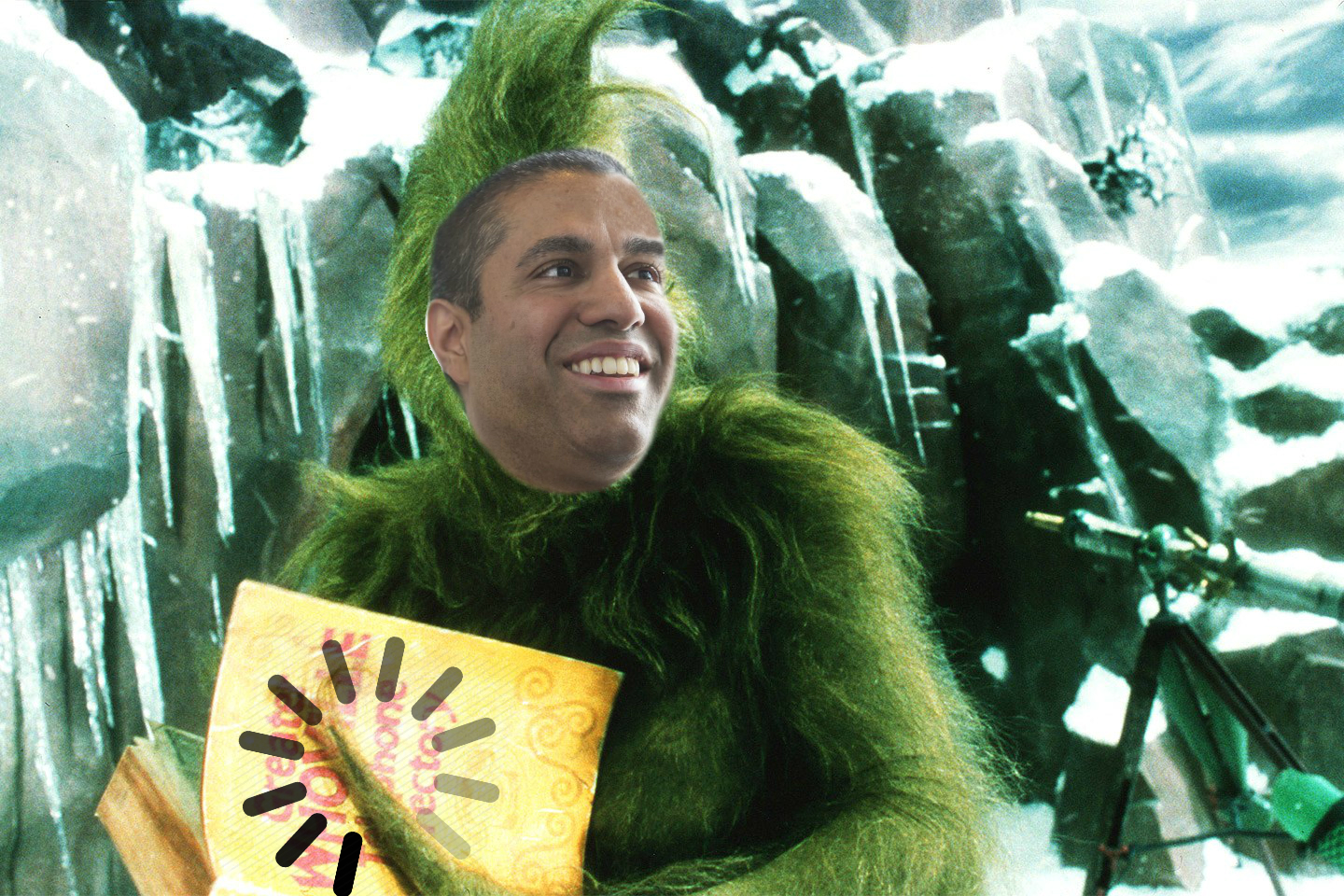The will of the people be damned.
This Christmas the Grinch (Ajit Pai) got his way with the repeal of the open and free internet. Today the FCC voted right down party lines with a 3-2 decision to remove the rules on keeping the internet an equal playing field. This comes after some 83% of those polled oppose the plan to gut the current system. But I think the worst thing is that Pai knew all of this and essentially spit in the face of the people, something exacerbated by never really making a case for why the repeal was a good idea.
It also didn’t help that in his final appearance before the vote Pai danced in a mocking video alongside a seeming proponent of that whole insane Pizzagate conspiracy. You know, the one about the child sex trafficking ring that was being run from a pizza restaurant, that also lead to a gunman storming the restaurant. Oh, and he also joked about being a Verizon puppet because, you know, that will endear you to the general public.
[perfectpullquote align=”full” bordertop=”false” cite=”” link=”” color=”#8B0000″ class=”” size=”16″]Net neutrality is the principle that Internet service providers must treat all data on the Internet the same, and not discriminate or charge differently by user, content, website, platform, application, type of attached equipment, or method of communication. For instance, under these principles, internet service providers are unable to intentionally block, slow down or charge money for specific websites and online content.[/perfectpullquote]Pai has often said that removing the current regulations are a good idea and would benefit the people, but for someone so adamant of the good it will bring, he’s never really sat down to talked with those opposed to turn them around to his side. What’s strange in this whole thing is that when polled, 3 out of 4 Republicans support Net Neutrality when it’s explained to them (see above definition). And you better believe they’ll be right pissed if conservative media is placed behind paid prioritization as much as those on the left will be.
Politics aside, when the American public see their Netflix and Hulu throttled, and their League of Legends requiring a special internet tier to play, you better believe people will get out and vote against those that allowed this to happen.
But aside from all that, many supporters of the repeal claim that the internet was doing just fine before the rules went into place. As a tech journalist I can assure you that simply wasn’t the case. In fact, these protections came into play because ISPs were taking advantage of consumers. But don’t just take my word for it! Let’s take a look at a few things that were happening before regulations were put into effect by our friends at WCCFTech.
2005 – North Carolina ISP Madison River Communications blocked VoIP service Vonage.
2005 – Comcast blocked or severely delayed traffic using the BitTorrent file-sharing protocol. (The company even had the guts to deny this for months until evidence was presented by the Associated Press.)
2007 – AT&T censored Pearl Jam because lead singer criticized President Bush.
2007 to 2009 – AT&T forced Apple to block Skype because it didn’t like the competition. At the time, the carrier had exclusive rights to sell the iPhone and even then the net neutrality advocates were pushing the government to protect online consumers, over 5 years before these rules were actually passed.
2009 – Google Voice app faced similar issues from ISPs, including AT&T on iPhone.
2010 – Windstream Communications, a DSL provider, started hijacking search results made using Google toolbar. It consistently redirected users to Windstream’s own search engine and results.
2011 – MetroPCS, one of the top-five wireless carriers at the time, announced plans to block streaming services over its 4G network from everyone except YouTube.
2011 to 2013 – AT&T, T-Mobile and Verizon blocked Google Wallet in favor of Isis, a mobile payment system in which all three had shares. Verizon even asked Google to not include its payment app in its Nexus devices.
2012 – AT&T blocked FaceTime; again because the company didn’t like the competition.
2012 – Verizon started blocking people from using tethering apps on their phones that enabled consumers to avoid the company’s $20 tethering fee.
2014 – AT&T announced a new “sponsored data” scheme, offering content creators a way to buy their way around the data caps that AT&T imposes on its subscribers.
2014 – Netflix started paying Verizon and Comcast to “improve streaming service for consumers.”
2014 – T-Mobile was accused of using data caps to manipulate online competition.
The list could go on and on, but you get the idea of why the rules came into effect in the first place. To say that things were fine before is simply silly.

